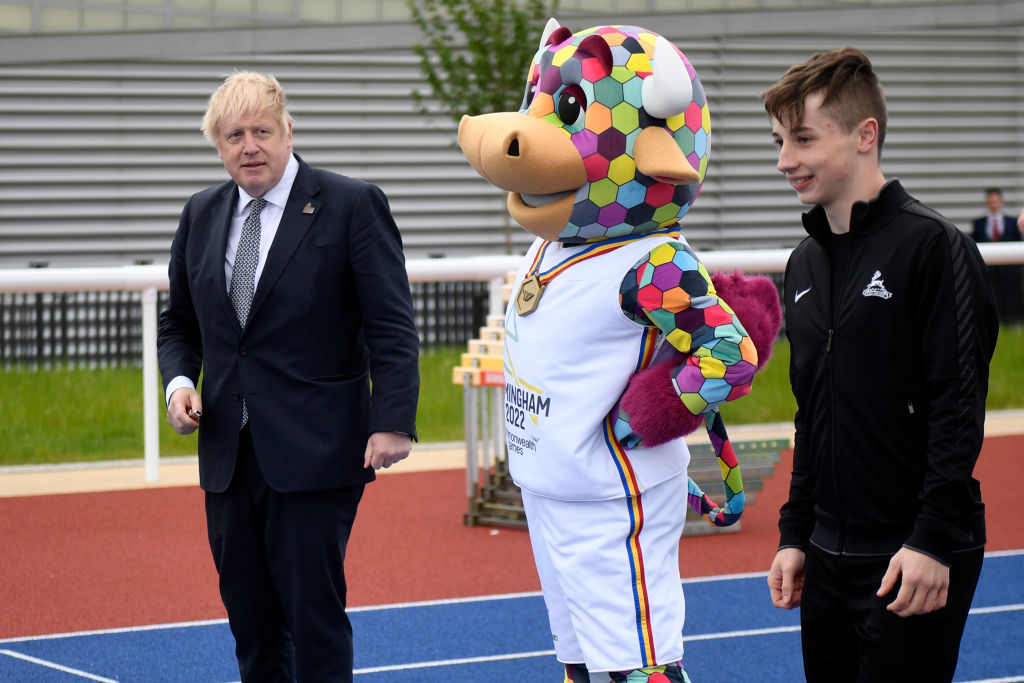The Commonwealths are the ‘Local Global Games’

The Commonwealth Games begin in Birmingham this week. It’s the Queen’s Platinum Jubilee, so where better than England’s second city? They should, however, be taking place in Durban, which would have become the first African city to host the Games.
The opening day would have been last week – on 18 July, Nelson Mandela’s birthday – in the city where he embarked on the fateful 1962 journey that would see him arrested and imprisoned for 27 years.
Due to financial constraints, the South African city had to give up hosting duties five years ago and the bidding process was reopened, with Birmingham successful. Perhaps it’s apt that the Games are heading to the West Midlands.
Coventry native Jerry Dammers wrote Free Nelson Mandela, a rallying call for the anti-apartheid movement. His bandmates in The Specials were at the heart of the two-tone movement that fused Jamaican Ska with punk and a new wave sound as a reaction to the racial tension plaguing Britain in the late 1970s and early 1980s. Forty years on and his home city will host its fair share of Commonwealth Games events.
For many years the success or otherwise of the Commonwealth Games was intertwined with the apartheid debate. The Edinburgh Games in 1986 were particularly acrimonious, with 32 nations boycotting the competition over the Thatcher government’s opposition to economic sanctions against South Africa.
By 1994, the apartheid regime had collapsed, Mandela had been released from prison and South Africa had been readmitted to the Commonwealth in time to participate in the Games in Victoria, Australia.
Ever since, however, the Games have had to battle suggestions that they are an anachronism. Perhaps more pointedly, criticism has also focused on the perceived lack of genuine top-class sport on display.
By their very nature the Games can never match the Olympics and Paralympics in terms of the quality of sporting performance, but their roots in the British Empire do benefit sports whose global footprint is defined by British colonialism.
Consequently, sports including netball and squash have struggled to forge a meaningful relationship with the Olympic movement yet are long-established Commonwealth Games staples with gold medals considered major prizes within those sports. Meanwhile T20 cricket – a one hit Olympic wonder back in 1900 – will make its debut in Birmingham with a women’s competition.
The Games are also looking beyond traditional sports to futureproof their appeal. Birmingham will host the inaugural Commonwealth Esports Championships in the hope that this pilot event can act as a forerunner to esports being elevated to the core programme at the 2026 competition.
This is likely to be the last Commonwealth Games of its kind, with a new roadmap offering host cities greater flexibility on the number and type of sports they include, to help manage costs.
Yet for all the forward-thinking attempts to keep the concept of the Games relevant, as well as the genuine attempts by the organisers to reach out to the host city and wider West Midlands region’s incredibly diverse local communities, issues of inclusivity remain a talking point.
Homosexuality remains illegal in no fewer than 36 countries participating in Birmingham. England’s Olympic and Commonwealth gold-medal winning diver Tom Daley has regularly urged the Commonwealth to do more to support gay rights.
While no major international sporting event is completely immune from politics, being the most visible manifestation of a political entity with very specific entry requirements perhaps limits the appeal of the Games in a way that does not affect other major global sporting events.
Put simply, the absence of the United States and any European nations means the Games simply do not present a significant enough commercial opportunity to attract major global sponsors, nor can they generate substantial sums of broadcast revenue.
An upside of this is that the Games can feel more local and representative of the host city or region and less of a globalised juggernaut in the way an Olympics or World Cup can.
This presents opportunities for cities that stand little chance of hosting an Olympic Games themselves, which can mean they embrace the chance to host the Commonwealth Games with real enthusiasm.
Certainly, the strong ticket sales for this year’s event suggest that by the time the Games open on Thursday, Birmingham will be anything but a ghost town.
Neil Hopkins is Global Head of Strategy at M&C Saatchi Sport and Entertainment.